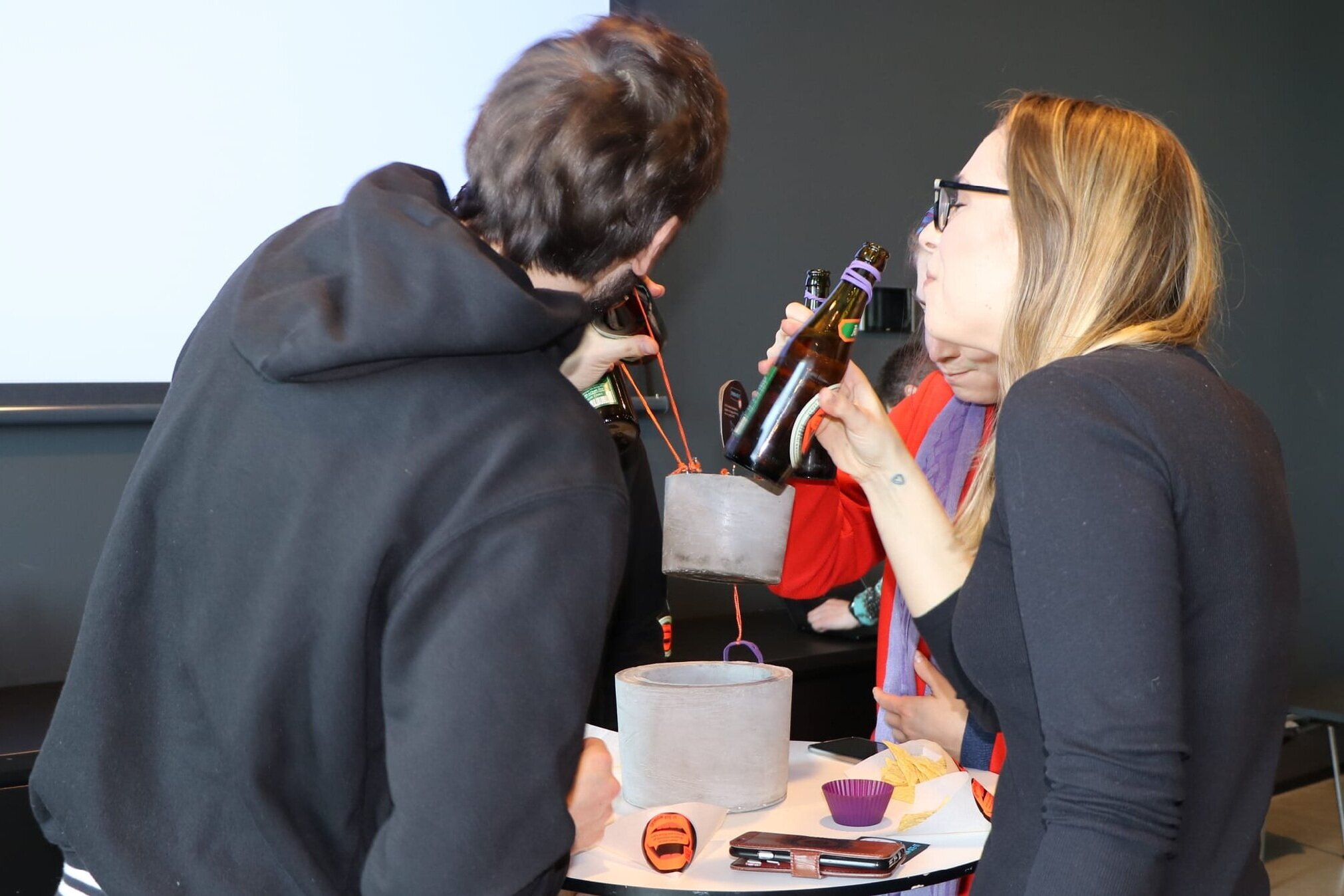opinion-ate-it
BRINGING PLAY AND POLITICS TO THE TABLE
“HOW MIGHT PLAY IN PUBLIC SPACES ENCOURAGE PARTICIPATION IN DEMOCRATIC SOCIETIES? ”
CASE
Prejudices and skepticism keep play apart from ‘serious’ scenarios like politics. Trying to push the boundaries of play; we explored a pairing of these two for a meaningful change in the current social challenge of low civic engagement affecting democratic societies.
Taking the responsibility of being part of the very first group of play designers, we used the opportunity our master thesis provided to show the value of our training by addressing social change through play and, at the same time, shape the bases of the profession.
SOLUTION
Opinion-Ate-It is an experimental framework for the research of the potential of play to break the barrier around political dialogues. Thus, we designed what we call Play Probes; objects that use play to hack eating and drinking practices and trigger informal political dialogues as a route for civic engagement.
CONCEPT
A play probe is a physical object that appropriates an everyday practice (in our case eating and drinking) to encourage social and critical play and can contribute to inspire or better understand abstract concepts. These objects construct a method for discovery using play’s capabilities for revealing social identity, social relationships and social structures. They show potential as an unveiling tool in subjective matters, provoking individual and shared reflections, and can be useful to explore abstract notions like citizenship or democracy.




PLAY PROBES CARDS
The Play Probes Cards are a set of approximately 40 cards that collect our findings and insights to inspire and assist designers aiming at advancing democratic practices in society through the use of these play objects that intervene everyday life practices. They are meant to serve as an exploration tool and constitute a Play Probe in their own.
THEORY-DRIVEN DESIGN PROCESS
Insights
During our initial research stage, we found three essential insights for framing and shaping the design process:
Informal political dialogues constitute a route that lead to civic engagement and participation whether the motivations to be take part in them are social or civic.
Food is a common element in a significant amount of everyday practices that take place in the common space and in which informal political dialogues occur.
Play can help breaking some barriers and prejudices about the seriousness of political practices, at the same time that contributes to citizens’ engagement in actions that encourage civic participation.
Re-framing
Consequently, our initial challenge was reframed including our new notions on civic and social motivations for participation, informal political dialogues for civic engagement, eating and drinking practices as dialogue facilitators, and play potential. ‘How might we use play to facilitate informal political dialogues in social settings of eating and drinking as a route for encouraging civic participation?’ was the starting point for conceptualizing our solution.
Experiments
We chose three festival-like events to intervene with our Play Probes (Counter Play, The Radical City and Global Goals World Cup) inspired by Sutton-Smith: ‘In these scenarios, play constitutes a metaphoric sphere that conjoins what is otherwise apart and pre-sets in the participants a willingness to participate in a subversive experience’. As we proposed.
Results
Informal political dialogues usually take place among trusted circles of people or once a conversation is mature enough. When introducing play, it is easier to dive into such discussions directly because play puts the topics forefront and allows an unapologetic approach to them. Play releases the taboo related to some of these discussions or to simply bringing it up with strangers. It gives us the permission to get away with certain behaviors because “we are just playing”. Related to this, it also eases the pressure of performance or being knowledgeable enough to speak up.
Short video clip of a playful research intervention with Uffe Elbeak and other Alternativet party members, underlining the problem of linking play and politics.
Our process was a theory-driven design research, which resulted in a dialogue between design, art, anthropological and business methodologies, tools and practices.
IMPACT
After our graduation at Designskolen Kolding, Opinion-Ate-It took part at two events related to the topics of our concern:
GIGAPP 2019: X Ibero-American Congress on Governance, Administration and Public Policies.
E-Food Lisbon 2019: Second International Food Design and Food Studies Conference. Experiencing Food: Designing Sustainable and Social Practices












